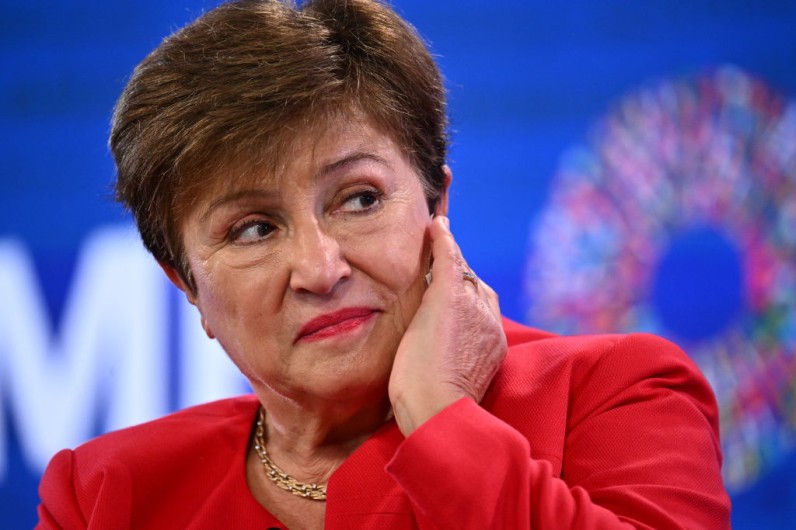To ease the economic strain caused by the ongoing conflict between Russia and Ukraine, the International Monetary Fund (IMF) has called for a $42 billion financial infusion to assist Ukraine.
IMF: Russia-Ukraine Conflict Is Barrier to Growth
Kristalina Georgieva, Managing Director of the IMF, stressed the urgency of addressing the two-year conflict, describing it as both a human tragedy and a significant barrier to growth, The Guardian reports.
Georgieva emphasized the imperative for swift resolution, stating, "The war in Ukraine is a tragedy for its people. Having men, women and children killed and wounded is a daily occurrence."
Meanwhile, the Group of Seven (G7) finance ministers have proposed using seized Russian assets worth nearly $300 billion to assist Ukraine. The G7 reaffirmed its commitment to supporting Kyiv by exploring all viable options within the framework of international law.
Seized Russian Assets to Fund Ukraine Defense
The proposal to use seized Russian sovereign assets is part of a more extensive discussion to provide tangible assistance to Ukraine while navigating legal and diplomatic challenges.
One potential approach is to redirect interest payments on frozen Russian assets, estimated to be worth €3 billion to €5 billion per year, to serve as collateral for loans or bonds to help Ukraine's financial stability.
The European Central Bank has expressed reservations about the outright seizure, citing concerns over potential retaliation from Moscow and adherence to international legal frameworks.
In light of the prolonged conflict in Ukraine, the G7 finance ministers have acknowledged the necessity for a sustained, long-term commitment to addressing the crisis.

Global Economic Stability
Georgieva stressed the imperative for resolution not only in Ukraine but also in other conflict zones such as Gaza, where prolonged hostilities have decimated the local economy.
She highlighted the urgent need to end conflicts for the sake of global economic stability, stating, "The war in Ukraine is a tragedy for its people... We need to end this war for their sake and for the sake of the world economy."
Amidst these geopolitical challenges, the IMF's World Economic Outlook projects a modest global economic growth rate of 3.2 percent for 2024 and 2025. However, disparities persist, with advanced economies poised for a slight acceleration while emerging markets and developing economies face a modest slowdown. Furthermore, global inflation is anticipated to decline gradually, albeit at varying rates across different economic regions.







Join the Conversation